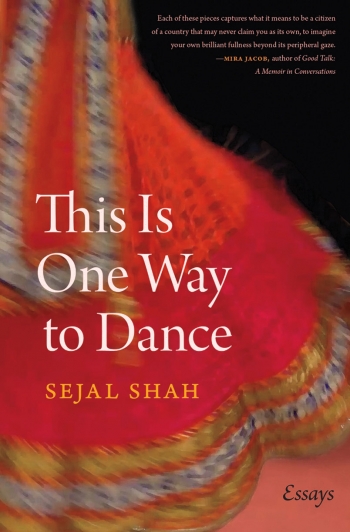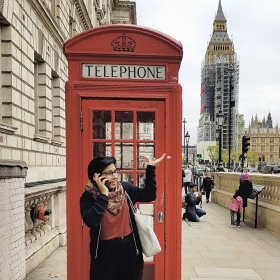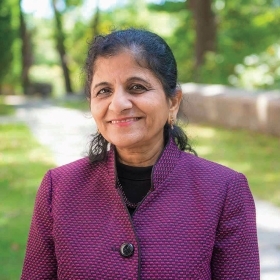To be a South Asian woman and to control the pen that writes your history is magnificent. Take up that space! Make your reflection visible. This Is One Way to Dance, a debut collection of essays by Sejal Shah ’94, encourages anyone forgotten by white America to do just that: Take. Up. Space.
Throughout these essays, which span over 20 years of musings on race, love, loss, language, and culture across locations, Shah gifts us with many gems. My favorite, “Saris and Sorrows,” includes a careful unfolding of what multitudes an Indian wedding can represent. In this essay, Shah emphasizes that “there is no such thing as a typical Indian wedding,” which reminded me of how people forget that there is also no one way to be South Asian. In this collection, Shah details her unique South Asian American experience of growing up in Rochester, N.Y., with Gujarati immigrant parents from India and Kenya. She also speaks of the different South Asians she’s met throughout her life, including her Tamil husband. By doing so, Shah makes very clear that her experience is not a monolith.
As a South Asian writer myself, who graduated from Wellesley 25 years after Shah, also as an English major, I read this collection as though I were learning about an alternate-universe version of myself, eager to hear how our lives differed. Her essay “The World is Full of Paper: Write to Me,” ends with the following: “I am writing now. I am writing to me. I am writing to myself and others like me,” and I immediately wrote in the margins, “like … me!??? You know I’m here!?”
After a pause, I crossed the questions out, because I decided to believe her. Shah’s words convey a confident awareness that, yes, she knows a reader like me exists. It’s me, the South Asian American reader, who had gotten so used to the prioritization of the white reader that, for a moment, I was shocked when I became the priority. Then I became grateful. I’m the eldest daughter in my household, and thus, often delegated the frightening task of testing unknown waters first; but here, Shah charts years’ worth of waters I have yet to explore, and reports back what she found for … me? And others like me!
What an immense favor! For me, her words make the daunting future seem softer. Her stories also illuminate the past I have been yearning to know. I voraciously marked my copy as though it were a textbook because in it was South Asian American literary history that I was not familiar with, and non-South Asian literary references that helped me understand my current frustrations as a storyteller. Shah quotes Adrienne Rich’s 1984 essay “Invisibility in Academe” in a footnote: “When the authority of a teacher, say, describes the world and you are not in it, there is a moment of psychic disequilibrium as if you looked into a mirror and saw nothing.” While well known, that quote was new to me, and correctly put into words the betrayal felt when meeting storytellers in 2020 who still couldn’t be bothered to imagine characters like me. In the margins of this footnote, I quietly wrote a new note, “Thank you.”
Throughout this collection, Shah makes her reflection visible—and she proposes ways to make our stories visible, as well. Her act of writing for herself is inspiring. You can’t help but feel an undercurrent that celebrates not just Shah’s debut, but the varied South Asian voices to come who will join her in the growing South Asian American literary canon, and take up space.
Sidikha Ashraf ’19 is an actress, theater producer, and TV comedy writer currently writing for a children’s animated project in development with DreamWorks.







We ask that those who engage in Wellesley magazine's online community act with honesty, integrity, and respect. (Remember the honor code, alums?) We reserve the right to remove comments by impersonators or comments that are not civil and relevant to the subject at hand. By posting here, you are permitting Wellesley magazine to edit and republish your comment in all media. Please remember that all posts are public.